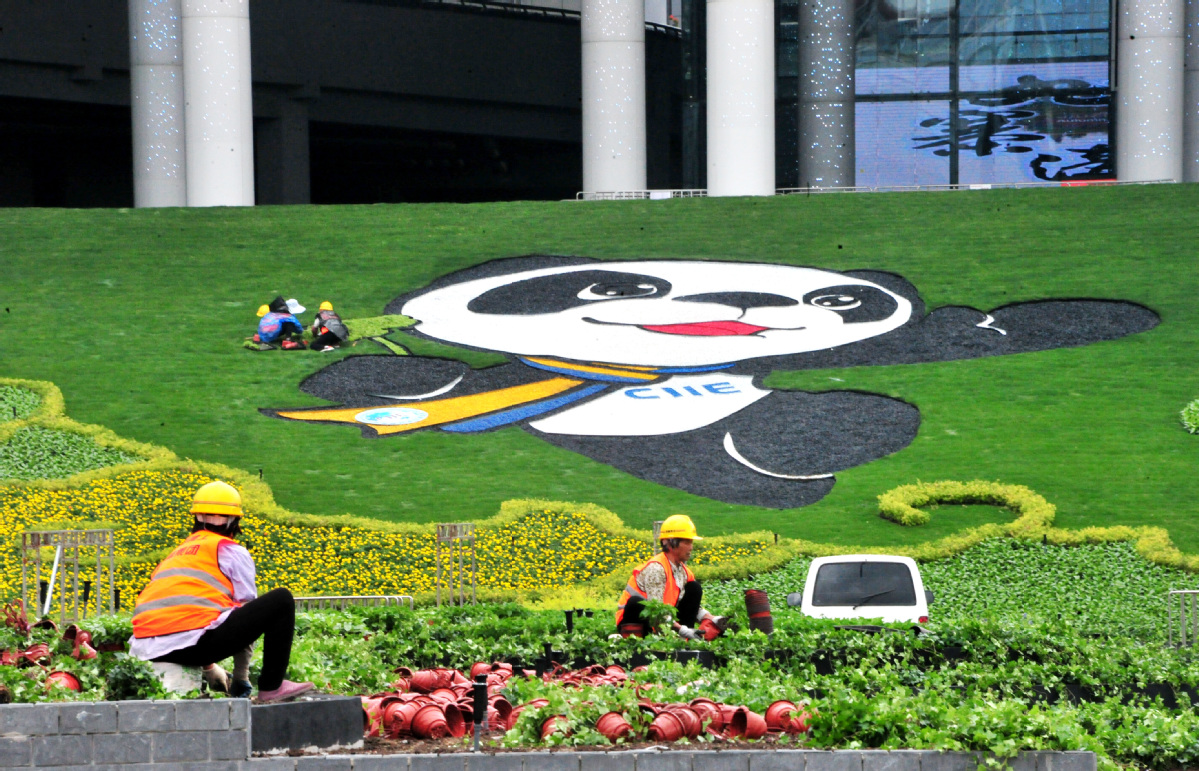Tax exemptions at CIIE set to boost international commerce


Experts expect more companies to do business with each other
China announced on Oct 12 tax exemptions on certain foreign goods to be sold at the third China International Import Expo, a win-win move set to benefit both global sellers and Chinese buyers, according to experts and business representatives.
Import duties, value-added taxes on imported goods and consumption taxes will be waived on a specified quantity of products across five categories, including machinery, electrical equipment and medical devices, according to a circular jointly released by the Ministry of Finance, the General Administration of Customs and the State Taxation Administration.
Exhibitors who do not fit into any of the five categories can also enjoy the policy for sales under $20,000, the circular stated.
The number of items that are eligible for tax relief is subject to a cap. For example, exhibitors of mechanical and electrical equipment can enjoy exemptions for up to 12 items each, while exhibitors of medical devices get a maximum of five.
The exemptions do not apply to goods including tobacco, alcoholic beverages, automobiles, and endangered species of animals and plants and their products.
Both importers and exporters stand to benefit from the tax exemptions, according to Wang Zhigang, deputy director of the Research Center for Macroeconomics at the Chinese Academy of Fiscal Sciences.
"For China as the importer, the policy is conducive to increasing the volume of imports and optimizing the structure of imports, which helps promote China's dual circulation development model," he said.
The dual circulation development model, proposed by China to bolster its economic resilience and that of the world's, is centered on domestic circulation and the promotion of the integration of domestic and global economies.
"Some of the imports eligible for the tax relief are areas where China comes up short," Wang said. "Increasing imports of these products will aid the high-quality development of China's industry and drive advances in production technology."
"For exporters from overseas, the tax exemptions will bring them more orders and help them create jobs."
One of the product categories is medical devices, which Wang thinks reflects the people-centered philosophy of development.
"Importing medical equipment can also help meet Chinese people's needs for high-quality medical services in their daily lives," he added.
Compared with the first and second CIIE, where the import value-added tax and consumption tax were levied at 70 percent, the upcoming third CIIE will waive these two items "in a bid to create a greater sense of gain for exhibitors and traders, thereby enhancing the expo's role as a vehicle to increase imports and optimize the structure of imported goods," according to the CIIE Bureau.
The tax policy will become a CIIE fixture starting from the third edition, and this "demonstrates China's firm commitment to opening up further and is set to ensure the high standards of the expo", the bureau added.
Wang said making the tax policy a fixture will help stabilize exhibitors' expectations and enable them to prepare their CIIE plans accordingly in advance. "Companies will be able to set their production targets for a relatively more predictable future, which helps ensure their normal production and operation," Wang said.
Exhibitors of the third CIIE have also welcomed the tax exemptions.
Construction machinery provider Wirtgen will be attending the CIIE for the first time this year. One of its latest products, the cold recycler W 380 CR, is eligible for the tax exemptions, according to a representative of the Germany-headquartered company.
"The tax exemptions will create tangible benefits for eligible exhibitors by directly cutting the cost of importing their products to China," the representative said.
"Exhibitors on the receiving end of the tax exemptions will be able to offer a more attractive quote for buyers, which will lower their purchasing costs," she said. "The win-win situation will expedite the application of new products and new technology in China and contribute to the technological advances in industry."
The normalization of the tax policy also signals that the Chinese government values bringing in advanced technologies and products from overseas, which boosts companies' confidence in the Chinese market, the Wirtgen representative added.
She said Wirtgen hopes the tax policy is here to stay and that the application and approval process will be more efficient and standardized.
Li Yang, head of the CIIE team at United States-based diagnostic solutions provider PerkinElmer, said, "The normalization of the tax policy enables our company to prepare its CIIE plan in advance.
"Knowing the policy will be implemented at future CIIEs, we will be able to make a stronger case for introducing to China the most advanced products from overseas."
Having the best exhibits on display will in turn draw more visitors, who will potentially bring sales, Li noted. He added that his company hopes incentive policies for buyers can also be rolled out to further cooperation among all parties.




































